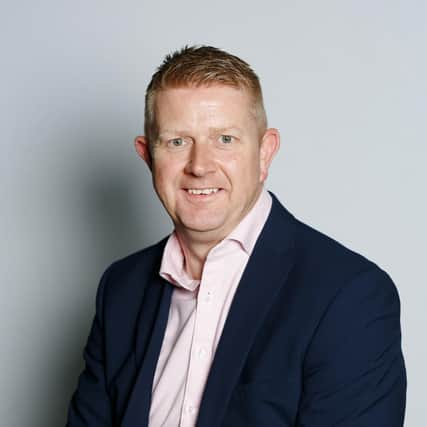How to create a successful city for the future - Steven Foster of Landsec


Shaping Successful Future Cities, a new report from Landsec (who own Trinity and White Rose) looks in-depth at the future of the UK’s urban areas and models the ‘best’ and ‘worst’ case scenarios ten years on – depending on the action we take now.
The worst-case scenario for our cities is, put simply, dystopian. In this hypothetical scenario, development has neglected to address social inequalities, or its environmental impact and urban centres are virtually unliveable. Divisions in communities are exacerbated and the city is ‘anti- nature,’ overwhelmed by the impacts of climate change.
Advertisement
Hide AdAdvertisement
Hide AdThe best-case scenario is a direct contrast – a city that promotes a high quality of life and an environment which empowers all communities and businesses. This is a successful city made of prosperous neighbourhoods and a flourishing natural world with a vibrant culture. The findings pose the question – how do we create successful cities for the future? The same question presents us with an opportunity to create cities that truly serve future generations. To live up to this and ensure cities like Leeds flourish, there are some crucial steps we must follow.
The first is devolution. City and local authorities need to be empowered to drive change, and this can be achieved through more meaningful devolution that empowers our local decision-makers. Leeds is lucky to be represented by strong local leaders, take the Major of West Yorkshire, Tracy Brabin, as just one example. In only two years, she has successfully created green jobs, invested in more accessible transportation, and launched an impressive Climate and Environment Plan. But more can be achieved with greater devolution, a model comparable to those already given to Manchester and Birmingham is needed across the UK.
This can build on our city’s vibrant culture and continue the spirit of Leeds 2023 long into the future. The second is clean growth, which is the key to building better futures. For us, this means that sustainability must drive the decisions we make at every level, from giving guests the opportunity to shop more sustainably, to how we power our shopping centres now. But creating clean growth doesn’t just sit with one person, it’s a collective responsibility we all share. Leeds Council has committed to making the city carbon neutral, a crucial step in future-proofing the quality of life for our diverse communities and we all must work together to make sure this happens. Planning reform and more effective public-private partnerships are also crucial. Our current
planning system creates barriers between councils, communities, and developers where we should be encouraging collaboration. Landsec’s Community Charter – commitments to working for and with local communities in development projects – has created an important framework to empower local people to hold developers and investors to account. It upholds high standards of planning, design, and development to cater for communities’ needs and ambitions.
Advertisement
Hide AdAdvertisement
Hide AdFinally, we need to focus on urban infrastructure funding to attract greater investment into our cities, boosting the economy and bringing people together. The opening of White Rose rail station later this year will create untold value for the local area.
By Steven Foster: Centre Director, Trinity Leeds and White Rose Shopping Centre